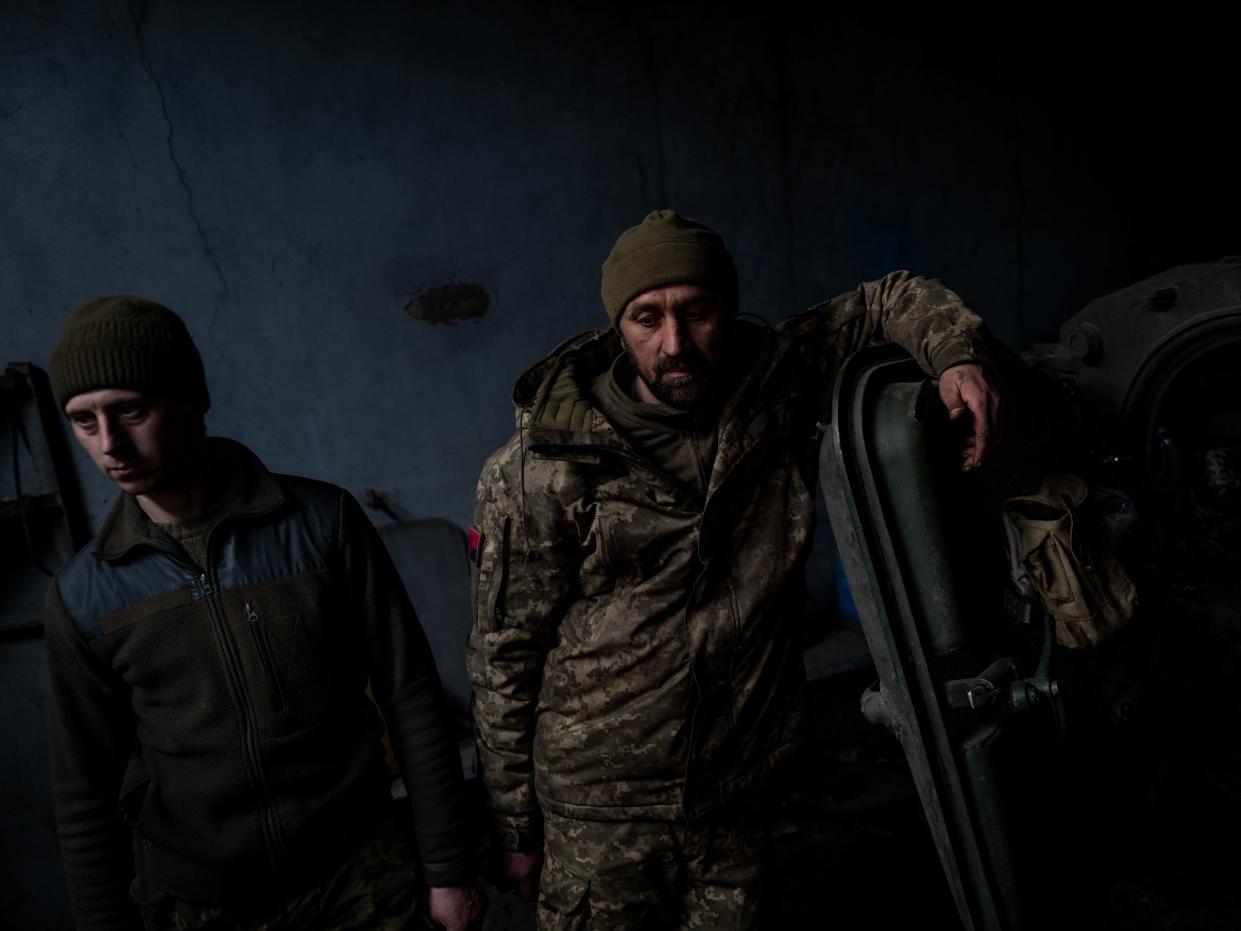A Ukrainian soldier wondered if the Russians advancing on Bakhmut are on drugs: 'Otherwise, how can they go to certain death?'

A Ukrainian soldier said troops from Russia's Wagner Group in Bakhmut seem like they are on drugs.
No evidence has emerged to show that Russia or the Wagner Group provide their troops with drugs.
Ukrainian soldiers have previously claimed that Russian troops seemed like "zombies."
A Ukrainian soldier fighting in Bakhmut told The New York Times that his unit has sometimes wondered if fighters belonging to Russia's infamous Wagner Group are on drugs.
While there's no evidence of that, it's not the first time Ukrainians have wondered aloud that the behavior of some Russian soldiers could be medically induced.
The Wagner Group is a powerful Russian paramilitary unit that has emerged as a key ally in Russia's advance inside Ukraine. The group once sparked controversy when it offered convicted Russian prisoners freedom in return for fighting. Fighters from the Wagner group are notorious for storming frontline positions and enduring severe casualties.
A retired US Marine estimated that the average life expectancy of a Wagner soldier on the frontlines in eastern Ukraine is just four hours. And a 48-year-old prison inmate who exchanged his freedom to serve in Russia's Wagner Group told the Wall Street Journal earlier this month that the group only trained him for three weeks and that he expected to die on his first mission.
It's the kind of behavior that soldiers from Ukraine's Third Assault Brigade, which is now fighting the Wagner Group in the key eastern city of Bakhmut, believe could be the result of taking drugs. The unit's media officer told The New York Times that 10 to 15 Wagner fighters were advancing on their position, to their almost certain deaths, every day during the first month of fighting.
"They are killed and they come again," he told The Times. "Our guys are wondering if they are on drugs. Otherwise, how can they go to certain death, stepping over the rotting corpses of their colleagues? You can go mad a bit."
Ukrainians earlier speculated that Russian soldiers were taking drugs in November as winter began to make the fighting ever more miserable, telling AFP that Russian soldiers seemed like "zombies."
"You shoot them and more come constantly," one soldier said, according to AFP.
Another Ukrainian soldier told CNN in February that advancing Russian forces looked like a "zombie movie" as they climbed over "the corpses of their friends."
"It looks like it's very, very likely that they are getting some drugs before attack," the soldier told CNN.
While there's no evidence that fighters from the Wagner Group are taking drugs, there is a long history of drug-taking in conflict.
During World War II, Nazi Germany administered amphetamines, which were touted as a "miracle product," according to TIME. Nazi soldiers took the drugs to increase their alertness and vigilance, according to the outlet.
Also during World War II, Russia's Ministry of Defense gave every Russian soldier on the frontline a 100-gram ration of vodka called the commissar's ration, according to a report from Macalester College.
And in World War 1, according to the BBC, cocaine and heroin use was common among soldiers. Department stores even sold kits for taking the drugs, which were marketed as a nice present for those fighting on the frontline.
Read the original article on Insider


